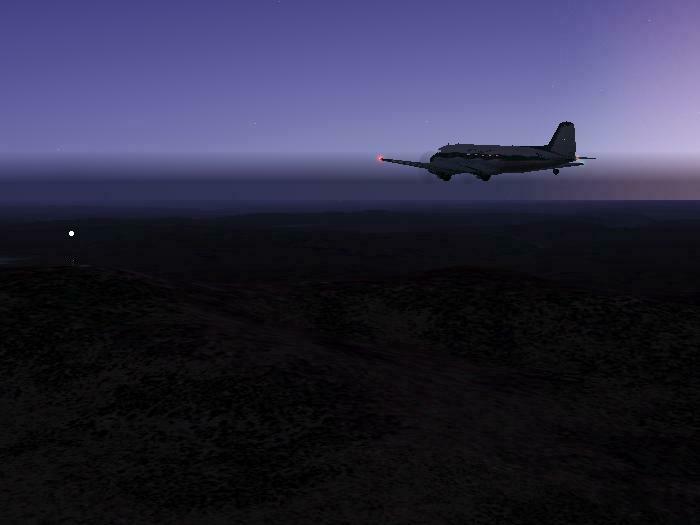
Be prepared to experience a new concept in Virtual Flight ... You will
return in time to the mid 1920s when many brave pioneer pilots risked, and
often gave of their lives, in the quest to make long distance delivery of
the mail by air the fastest and the preferred way to deliver the mail.
In the early days the mail service was only flown by day. This gave no real
advantage over the railroads which traveled both by day and by night. But
soon these pioneer pilots were attempting to fly the mail day and night,
stopping only long enough to refuel, drop off and pick up mail, and to
change pilots. This was acknowledged as the only way to effectively compete
with the railroad, and also the only way to make delivery of the mail by air
a viable proposition for the future.
Transcontinental Airways were identified by rotating light beacons atop 51
ft towers which enabled pilots to safely fly across country at night when
conditions were VFR.
The story of the Airmail is long and makes very absorbing reading. Go
here for a fuller
understanding of what we are introducing to you. Two further addresses
within the same web site will reward you with a wealth of information
regarding the Airmail and should whet your appetite for what we have in
store for you.
Those addresses are:
![]() What
is our quest? It is our attempt to give you the opportunity to fly the DC-3
under the same conditions experienced by those pioneer pilots of the 1920s.
We obviously cannot reproduce exactly the conditions under which the pilots
flew but I am sure that you will acknowledge that we have come as close as
it is possible to get.
What
is our quest? It is our attempt to give you the opportunity to fly the DC-3
under the same conditions experienced by those pioneer pilots of the 1920s.
We obviously cannot reproduce exactly the conditions under which the pilots
flew but I am sure that you will acknowledge that we have come as close as
it is possible to get.
We offer this Transcontinental Route to introduce you to a whole new way of
flying.
Full credit and thanks go to Al Gay and Johan van
Wyk who toiled for months developing the light-beacon procedures
and to create the lighted airways. They have laid a network of rotating
light beacons over the original Transcontinental Air Mail route across the
US ... A total of 32 legs if flown in both directions.
NDB beacons (maximum range - two miles!) are co-located at each light beacon
so that you may identify which beacon you are nearing by it's Morse code
identifier. They are numbered 0, 1, 2, 3, etc., as were the original beacons
using flashing lights. Don't get lost, though, because the short-range NDBs
will be of no help in finding your way back on course.
You will fly and navigate in the dead of night using nothing more than a
flight description and the Mk 1 eyeball. You must fly the routes in VFR
conditions and we hope that you will use Real Weather or equivalent to
enhance the realism of the early flights.
These flights will demand your close attention. Boredom will not be a
problem.
 We
anticipate that this will be the beginning of a whole new way of flying the
old way. You will need to pay attention to drift angles when flying these
routes, so dust off your E6-B calculators, virtual, digital, or real. Those
who have installed Mark
Beaumont's fs9 kneeboard will have E6-B access with no interruption of
their flights.
We
anticipate that this will be the beginning of a whole new way of flying the
old way. You will need to pay attention to drift angles when flying these
routes, so dust off your E6-B calculators, virtual, digital, or real. Those
who have installed Mark
Beaumont's fs9 kneeboard will have E6-B access with no interruption of
their flights.
To the left is the fs9 Airway Rotating Beacon and Tower and the adjacent
Equipment Shed.
The Night Mail download includes a detailed readme file by Sr. VP Norman
Hancock. It contains full information on how to fly a light-beacon route.
The words in this description were also excerpted from Norman's file.